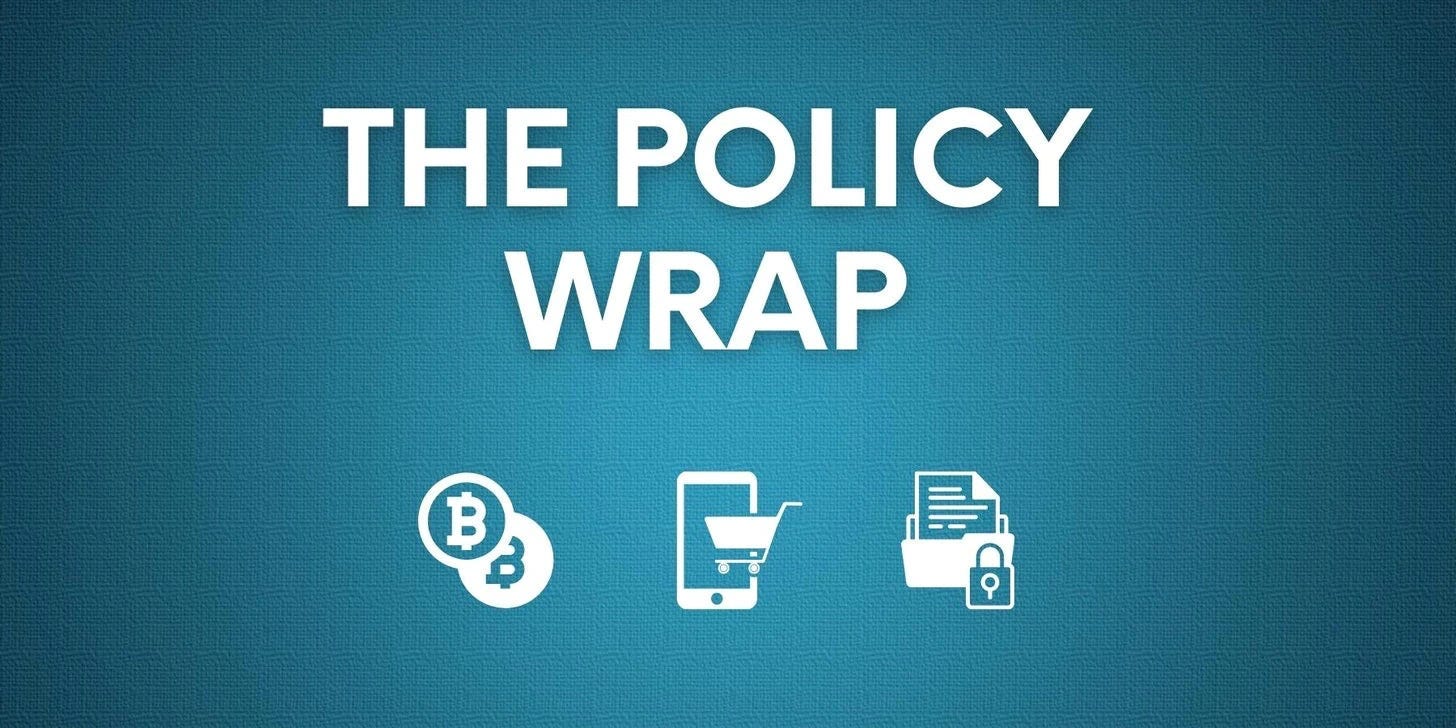Policy Wrap: Rajya Sabha standing committee calls for a body to regulate Digital Markets, impact of SVB’s collapse will be minimal on Indian startups, and more
Share your feedback and comments with us at office@adif.in
Rajya Sabha standing committee calls for a “Digital Market Division” to regulate digital markets
In a recent study on e-commerce regulation, the Rajya Sabha standing committee on commerce proposed that a "Digital Market Division" be created within the Competition Commission of India (CCI) as an expert division with the sole responsibility of regulating digital marketplaces.
The committee suggested that the Digital Market Division should be specifically tasked with regulating the digital markets, with participation from all current regulators concerned with e-commerce, including the Department for Promotion of Industry and Internal Trade (DPIIT), Ministry of Consumer Affairs, Food and Public Distribution, Ministry of Electronics and Information Technology (MeitY), and the Reserve Bank of India (RBI).
As per the committee, a national cybercrime strategy should be developed too, given there is an increasing reliance on digital technology. It has requested that the government create a comprehensive national cybercrime policy or legislation after consulting with relevant parties and business professionals.
RBI informs Parliamentary Panel that global funding for Indian startups may take a pause, but impact due to SVB’s collapse will be minimal
The availability of global funds for Indian startups "may take a pause" in the near future in response to Silicon Valley Bank's (SVB) collapse, the Reserve Bank of India (RBI) informed a parliamentary panel. The RBI also said that the venture capital business is re-evaluating investments as a result of rate hikes and tightening liquidity circumstances globally.
Fundraising has already decreased 35% in India from $37.20 billion in 2021 to $24.70 billion in 2022. The failure of SVB may contribute further to this trend, and the short-term availability of international funding for Indian entrepreneurs may slow down.
However, the RBI assured the parliamentary standing committee that the impact due to SVB’s collapse will most probably be minimal on the Indian startup ecosystem.
Pre-approved digital credit lines from banks to be allowed for borrowers through UPI
Pre-approved credit lines at banks may now be used through the Unified Payments Interface (UPI), as per the Reserve Bank of India (RBI). On April 6, 2023, RBI Governor Shaktikanta Das made this declaration while delivering the outcomes of the bimonthly monetary policy committee meeting.
Currently, UPI transactions can take place between bank deposit accounts and are occasionally mediated by prepaid devices like wallets. In addition to deposit accounts, it is currently suggested to broaden the use of UPI by facilitating transfers to/from pre-approved credit lines at banks
This is a big step towards a digital banking ecosystem which is expected to be more effective, and should provide the sector with a much-needed boost. Pre-approved credit lines through UPI, will significantly reduce the time and effort users must put up to secure loans, therefore promoting economic growth and development.
Customers of UPI will now have additional convenience and freedom when handling their money due to this extension. Because banks are able to offer credit products at cheaper prices because of UPI's low-cost infrastructure, users' access to credit may also become more affordable. This could facilitate more digital payments throughout the nation, which could lead to the creation of creative credit products for Indian consumers.
MeitY announces final guidelines for online gaming, to appoint SROs
The final guidelines for online gaming were announced by the Ministry of Electronics and Information Technology (MeitY). According to them, the government will select numerous self-regulatory organisations (SROs) made up of business leaders, educators, and other specialists like child experts and psychologists. These SROs will be in charge of determining whether internet games are legal based on whether they allow wagering.
The word "online game" is further defined in the new regulations as "a game that is offered on the internet and is accessible to a user through a computer resource or an intermediary."
Regulation is solely for real money wagering-related games asper MeitY. By way of exclusion, all other game types shall be allowed.
All gaming firms will need to make sure that an online game is registered with and approved by an SRO before hosting, publishing, or advertising it for a fee.
Through its website and mobile app, the gaming intermediary must also publish the credentials of the SRO that registered and approved the game. SROs of this nature must register with the IT ministry.
Poll suggests Indian startups should bank locally after SVB collapse
Following the stunning collapse of Silicon Valley Bank (SVB) last month, over three-fourths (74.62%) of respondents to an ETtech Poll stated that Indian entrepreneurs should use local banks for foreign transactions, While 16.75% of respondents disagreed with this viewpoint, 8.63% of voters were unable to make up their minds.
Indian startups have taken a number of steps to remove their deposits from SVB in response to the government and industry experts' increasing requests to collaborate with regional banks.
For startups and tech firms whose funds were temporarily frozen at SVB, banking units at the International Financial Services Centre (IFSC) in Gujarat's Gift City emerged as one of numerous options. According to executives from the startup and banking ecosystems, in addition to Gift City, entrepreneurs have also transferred their funds to other US, Indian, and foreign branches of Indian lenders based on the presence of their customers and suppliers.


